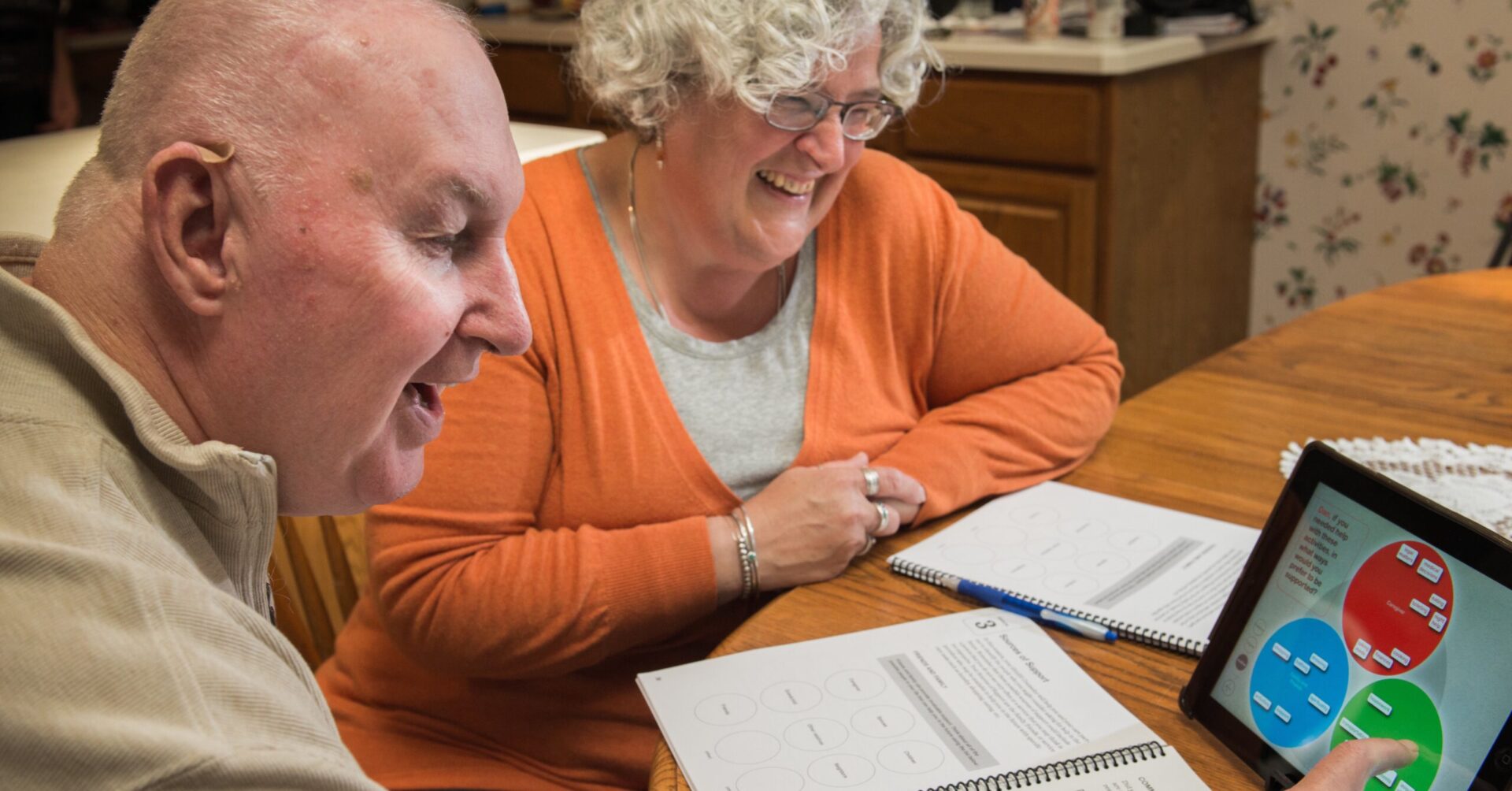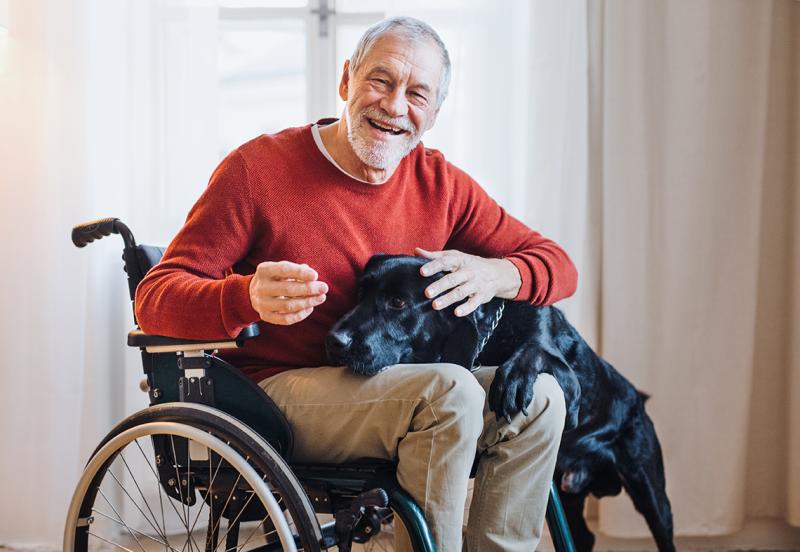Specialty Focus Areas
At Benjamin Rose Institute on Aging, our specialty areas of research encompass a wide range of critical issues affecting older adults and their caregivers. From our pioneering work in family and friend caregiving to our innovative programs addressing elder justice, diversity in aging, dementia care, program evaluation, human-animal bonds and the impact of health services, we are dedicated to advancing knowledge and developing practical solutions to improve the lives of older adults.

Explore our areas of expertise
Dementia Care Programs

Much of our dementia-specific research involves both the person living with dementia and their family or friend caregiver, as this is often the most effective method for achieving lasting impact.
The SHARE for Dementia program is a dyadic intervention based on two decades of research offering recently diagnosed individuals a voice in planning for their future care. On the horizon is the introduction of a new music therapy intervention for people living with dementia, to be delivered by volunteers in a group setting. An adapted version of BRI Care Consultation™ also is designed to serve people living with dementia and their family and friend caregivers.
Diversity in Aging

Benjamin Rose Institute on Aging has strengthened core programming and introduced new services to better meet the needs of divergent racial, ethnic and LGBTQ+ populations. Program modifications for Diverse Communities has recently been added to the public version of Best Programs for Caregiving, providing caregivers with details about programs that have been adapted to meet the needs of diverse populations.
Also currently available are Program Diversity Evaluations, offering organizations an analysis of their program’s effectiveness in meeting needs and eliminating service barriers for diverse populations.
Elder Justice

Active in the field since the 1970s, Benjamin Rose has in the last decade been involved in four significant cross-system collaborations to address abuse, neglect and exploitation among older and/or disabled adults.
This research has resulted in numerous educational programs and tools including the Recognizing Abuse Tool and Risk of Abuse Tool. A new product has also been developed — Online Training for Mandated Reporters. These training modules for mandated reporters of abuse, neglect and exploitation of older adults are applicable to a wide range of professionals that may be in situations to recognize and report suspected abuse.
Important work in this area has also resulted in the development and evaluation of a care coordination program in Utah to provide follow-up for alleged victims and perpetrators of caretaker neglect.
Family and Friend Caregiving

Through 60-plus years of applied research, Benjamin Rose Institute on Aging has worked to deepen the industry’s knowledge into the field of family caregiver supports and has contributed structural frameworks that continue to guide program development.
In recent studies, the unique framework of evidence-based BRI Care Consultation™ served as a foundational program that helped inform the CMS GUIDE Model and national dialogue about the importance of person-centered Care Navigation as a key resource for families caring for someone with chronic health conditions.
Another milestone in this field has been the creation, launch and dissemination of Best Programs for Caregiving, a free online database of evidence-based dementia caregiving support programs. The professional section of the database guides organizations in comparing and selecting the best programs for their populations. The public-facing segment puts program information—such as types of help provided, cost and how to enroll—directly into the hands of family and friend caregivers who need it most.
Human/Animal Bonds

Benjamin Rose Institute on Aging has become a leader in a developing area in gerontology: understanding the role of pets in the lives of older adults. Recent work has focused on aging and pet ownership, including both benefits and challenges, resource needs and the issues that pet ownership may generate for family and friend caregivers. Additional research is looking at strategies to enhance the ability of older adults to maintain pets in their home if provided with minimal assistance with regular pet care.
Program Evaluation and Consumer Satisfaction

Helping social service and community-based organizations to evaluate the effectiveness of their programming is an important service offered by Benjamin Rose Institute on Aging. These surveys help organizations understand how to deliver person-centered care to better meet the needs of their communities. Similarly, community-based organizations and government agencies rely on our expertise to develop and deliver surveys that delve into satisfaction levels of program participants to offer critical feedback about the efficacy of programming.
As a Third-Party Evaluator, our evaluation services also frequently help grant-funded organizations meet the reporting requirements of their funders.
Use and Impact of Health, Community and Support Services

We conduct research to better understand factors that influence decisions of older adults and family caregivers to use services for care and treatment of chronic physical and mental health conditions, as well as outcomes and experiences of service use.
Investigations focus on multiple types of predictors of service use and service outcomes, including characteristics of individuals living with chronic health conditions and their caregivers, characteristics of service providers and service organizations, and characteristics of communities and social determinants of health. Also of interest is the relationship of primary and specialty healthcare services and community-based services, fragmentation and coordination among services, innovative care delivery models, and transitions in care such as hospital-to-home and home-to-nursing home.